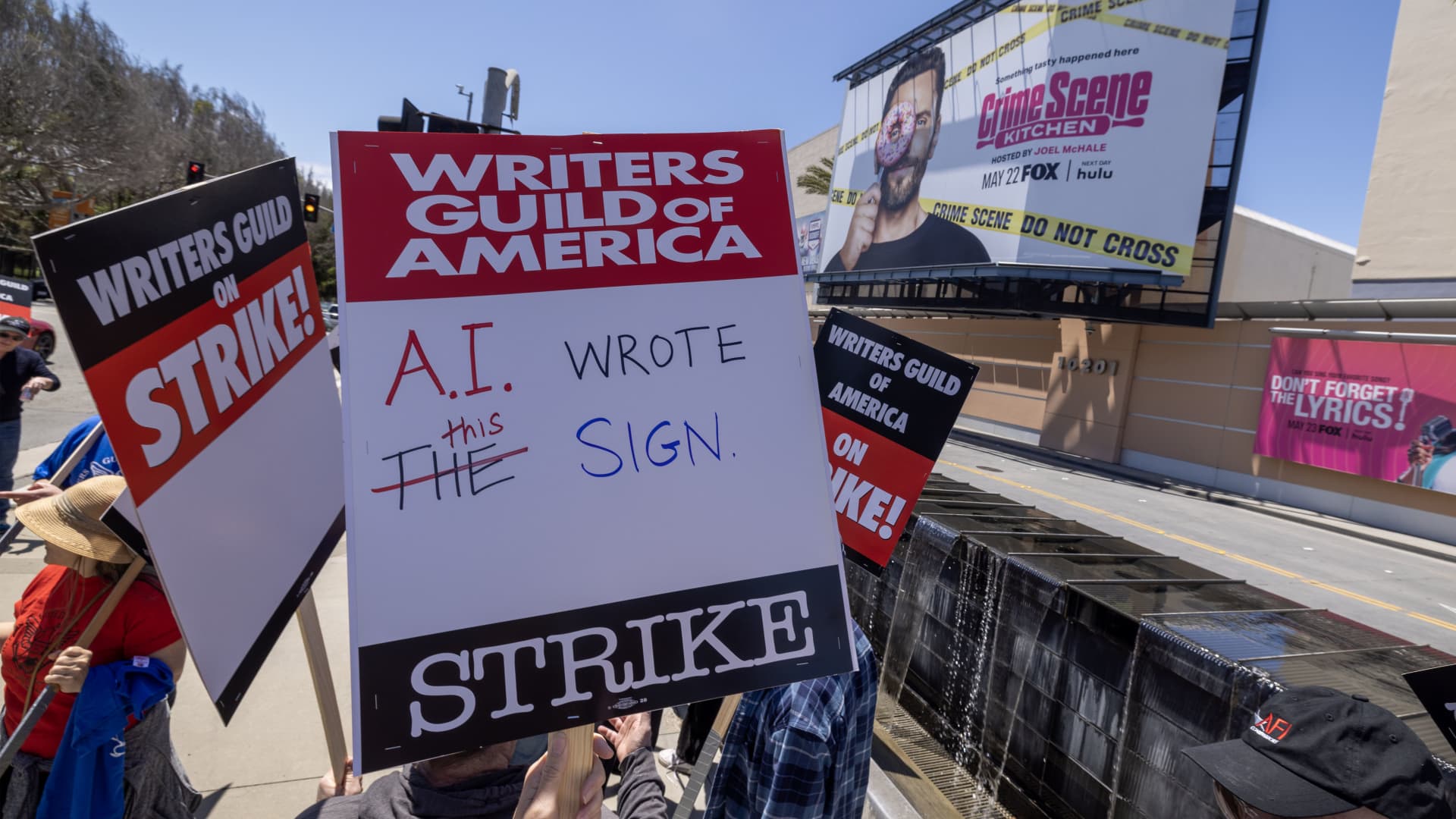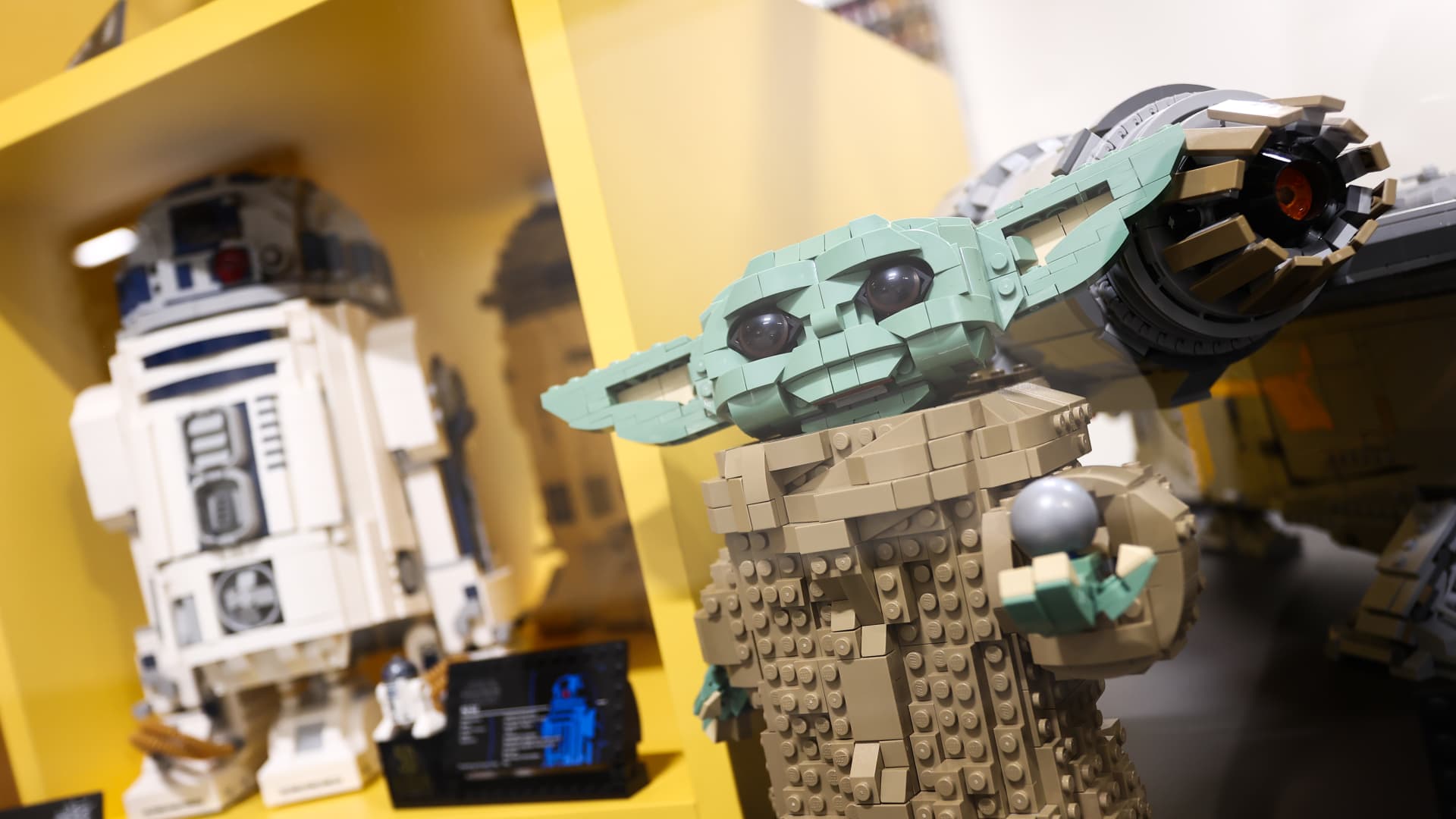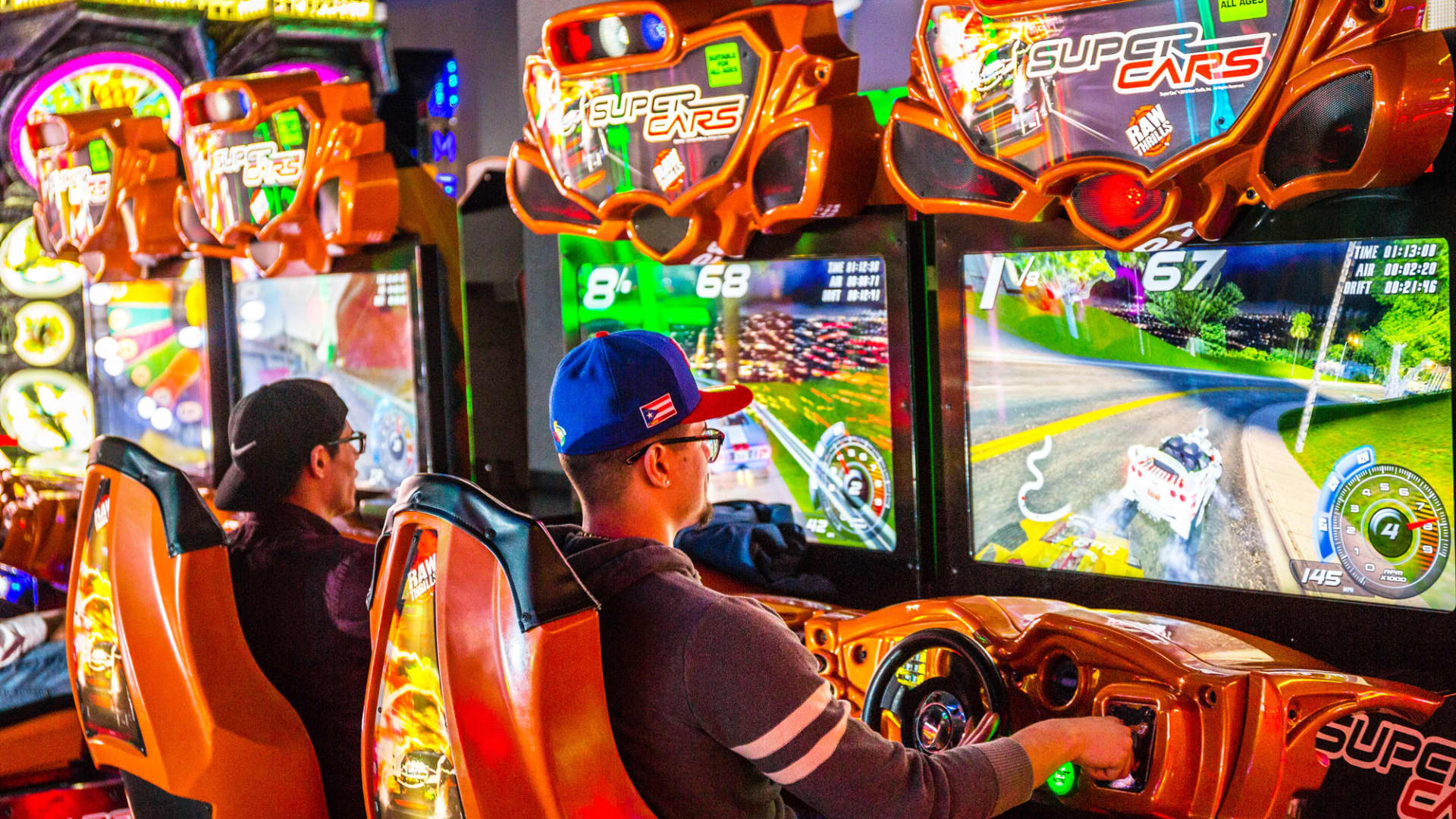
People picket outside of FOX Studios on the first day of the Hollywood writers strike on May 2, 2023 in Los Angeles.
David Mcnew | Getty Images
Hollywood is gearing up for another labor fight, and once again worries about artificial intelligence are front and center.
The Alliance of Motion Picture and Television Producers has three weeks and two days starting Wednesday to seal a deal with the Screen Actors Guild and American Federation of Television and Radio Artists – or see swarms of picketers outside studio gates.
Hollywood’s talent wants to create guardrails for the use of artificial intelligence in future television and film productions.
A recent series of viral deep fake trailers featuring the visages of Bill Murray, Scarlett Johansson, Tilda Swinton and Timothee Chalamet as Wes Anderson-style versions of Star Wars and Lord of the Rings characters only exacerbated worries that actors could be replaced in film and television shows without proper permissions or payment.
“Certain unauthorized AI uses may effectively devalue some of our members’ performances, but the concerns go far beyond that,” Duncan Crabtree-Ireland, national executive director and chief negotiator for SAG-AFTRA, told CNBC in an emailed statement.
“Our members have the right to know what projects they are working in, what dialogue they are saying, what cause their character is advocating for, what actions their body will be tasked with doing,” he said. “Our members are human beings, not puppets, and it is a violation to use AI technology to make them do or say something without their informed consent.”
Read more: A.I. poses a new threat to newsrooms, and they’re taking action
AI has been a major concern for all of Hollywood’s guilds, who see their jobs as especially vulnerable to this new technology. For its part, the AMPTP has said AI tech “raises hard, important creative and legal questions for everybody.”
The Directors Guild of America was able to secure a preliminary deal with producers over the weekend that would guarantee wage hikes starting at 5% the first year, an increase in residuals from streaming and a guarantee that artificial intelligence could not replace the duties performed by members. The DGA’s board unanimously approved the agreement, paving the way for members to vote on it.
Both the Writers Guild of America and SAG-AFTRA are seeking protections against AI use in their negotiations, in addition to increases in compensation for streamed content.
SAG-AFTRA has acknowledged that AI technology can have its benefits in the industry, but it wants to ensure that any use of AI to replicate an actor or create a new performance is done with the actor’s consent and payment. The guild has similar rules already in place when it comes to computer-generated image capture.
“Generative AI tools should be deployed to assist and augment human beings, rather than to replace them,” said Crabtree-Ireland. “Our members fundamentally want to ensure a human-centered approach to the implementation of AI in our industry, where the AI serves humans, not the other way around.”
Already, some performers, such as James Earl Jones, have agreed to have their voices cloned for use after their deaths. Jones, 92, famously voiced Darth Vader in the Star Wars franchise and sought to wind down from the role. Jones was compensated and the technology was used to bring Vader’s iconic voice to Disney+’s “Obi-Wan Kenobi.”
Actors have varying comfort levels with how AI is used, which is why SAG-AFTRA is looking to advocate for informed consent when it sits down with the AMPTP. Essentially, the guild wants to ensure that if and when an actor agrees to having their image or voice used for a specified project it is only used for that intended purpose and that actors are properly compensated.
The fear is that studios could try to cut costs and boost revenue by using AI to pump out new content by feeding it existing material, like how the Anderson parodies were created.
A brave new world of A.I. gods and monsters
Jaap Arriens | Nurphoto | Getty Images
Over the past year, generative AI has exploded in use and development — especially since the fall of 2022, when OpenAI released its AI chatbot, ChatGPT.
A few months and 100 million monthly active users later, the tool set records for the fastest-growing app in history. Overall, the sector’s growth has generated billions of dollars in deals. And the phenomenon didn’t stop at text-based generative AI: models for generating images and video went viral, too. Five weeks after OpenAI released image-generation model DALL-E 2, more than 3 million people reportedly used it to generate over 4 million images daily.
Comparable image-generation tools like Stable Diffusion and Midjourney quickly picked up steam, and tech giants like Meta, Google and Amazon – which has its own film studio – released AI models for generating video content.
“AI concerns are similar in certain ways to concerns about the ethical use of CGI, but are much more wide-ranging due to the immense flexibility available in the use of generative AI along with the modest technological requirements to achieve surprisingly believable results,” said SAG-AFTRA’s Crabtree-Ireland. “The combination of these elements make generative AI a much more capable and much more dangerous technological development, and one that merits our attention and our efforts.”
Hollywood’s concerns about AI aren’t going away anytime soon, either. On Monday, SAG-AFTRA members gave its negotiators the ability to authorize a strike should negotiations stall. If actors leave the bargaining table without a deal, 160,000 performers will walk off film and TV sets, leading to a massive shutdown of production.
The industry is already contending with 11,500 writers refusing to work, which has led to dozens of production and writers room shutdowns.
Already Netflix has postponed the production start of the fifth and final season of “Stranger Things,” Warner Bros. Discovery‘s “Game of Thrones” prequel “A Knight of the Seven Kingdoms: The Hedge Knight” shuttered its writers room, and Disney and Marvel’s “Thunderbolts” and “Blade” have paused production.
Some productions have been able to continue in the wake of the writers strike, as scripts were already completed. However, if SAG-AFTRA strikes, those shows and films will immediately stop shooting – and the debate over AI in movies will rage on.
Disclosure: Comcast is the parent company of NBCUniversal and CNBC. NBCUniversal is a member of the Alliance of Motion Picture and Television Producers.







